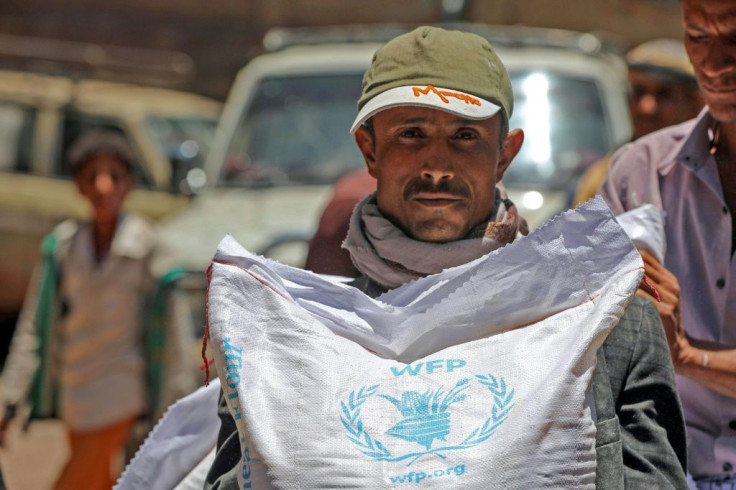Pandemic Foils Nobel Prize Festivities
The lavish Nobel festivities usually held in December to f?te achievements in science, literature and peace have been scrapped this year, as the pandemic prevents the 2020 laureates from collecting their prizes in person.
The Nobel prizes are traditionally awarded at formal ceremonies on December 10, the anniversary of the 1896 death of prize creator Alfred Nobel.
The prizes for medicine, physics, chemistry, literature and economics are presented in Stockholm, while the peace prize is awarded separately in Oslo.
But this year Covid-19 has dealt a blow to the revels, usually attended by royals sporting tails and glittering tiaras and followed by gala banquets.
After already cancelling the Swedish festivities in September, the Nobel Foundation on Wednesday announced that the head of the World Food Programme would not be able to collect the Peace Prize in Norway next month.
It said it was considering holding a digital award ceremony in December, and the traditional lecture and banquet would be held next year, when, hopefully, WFP director David Beasley would be able to attend.
"With the current restrictions in Oslo, it would not be possible to carry out the ceremony or other parts of the laureate's traditional programme in a good and worthy manner," organisers said in a statement.
The last time there was no Nobel ceremony in Oslo was in 1976, when the committee decided to "reserve" the honour for lack of a candidate deemed worthy.
It was awarded retroactively the following year.
"The 1977 ceremony hosted the laureates for both 1976 and 1977," recalled Nobel Institute librarian Bjorn Vangen.
But, to his knowledge, a Nobel ceremony has never been cancelled.

While Covid-19 infection rates remain relatively low in Norway compared to the rest of Europe, the Scandinavian country has introduced stricter measures to curb the spread of the virus, including limits on cultural and sporting events.
By postponing the in-person festivities until 2021, the peace prize organisers have followed in the steps of the organisers of the Stockholm ceremony.
This is the first time the Stockholm ceremony has been cancelled since 1944, then because of World War II.
Instead, a televised event will show the laureates receiving their medals and diplomas in their home countries.
In Oslo, organisers had held onto the hope that they would be able to welcome Beasley in December, albeit at a scaled-down ceremony.
The WFP, founded in 1961, was honoured with the Peace Prize for its efforts "to prevent the use of hunger as a weapon of war and conflict", Nobel committee chairwoman Berit Reiss-Andersen said when she announced the winner on October 9.
The peace prize ceremony has taken on different forms since it was awarded for the first time in 1901.
Initially very minimalist, consisting largely of a simple announcement in parliament for the first years, it began to garner more attention after World War II.
Nowadays, the award ceremony is held in Oslo's City Hall in the presence of the royal family, members of the government and diplomatic corps, and even a few Hollywood celebrities.
"It has happened that the laureate is not present," said Vangen, as was the case for Aung San Suu Kyi, Mikhail Gorbachev and Liu Xiaobo, "but the ceremony has always gone ahead anyway."
In the case of Chinese dissident Liu Xiaobo, who was imprisoned in China at the time, an empty chair was placed on the podium.
© Copyright AFP 2024. All rights reserved.





















